When most people hear the word “Wicca,” they often imagine witches, spells, or maybe even cauldrons bubbling under a full moon. But in reality, Wicca is a peaceful, nature-based spiritual path that centers around harmony, personal growth, and respect for the Earth. At the heart of Wicca is a type of practice known as white magic a form of magic focused on healing, protection, and positive energy.
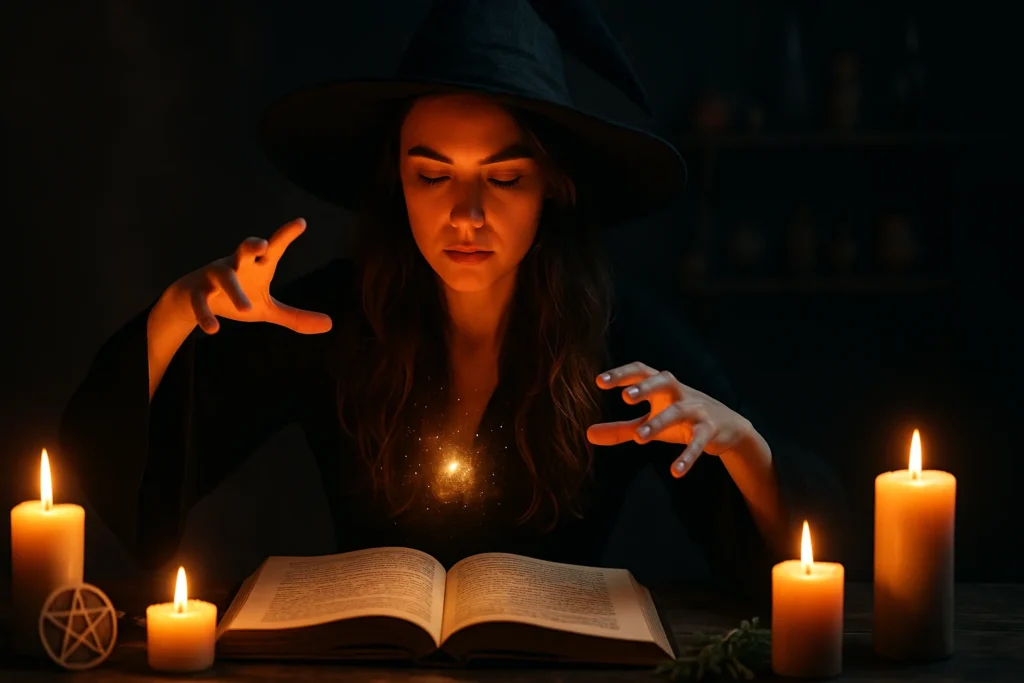
What Kind of Magic Do Wiccans Use?
Wiccans typically work with white magic, which is very different from the dark, harmful kind of magic often portrayed in movies or fiction. White magic is all about using intention and natural energy to bring about good things — whether that’s helping someone heal, finding peace, attracting love, or simply creating a sense of balance. It’s not about controlling others or forcing outcomes; it’s more like tuning into the flow of nature and guiding energy gently, with care.
Spells in Wicca often involve candles, herbs, crystals, and spoken words, but it’s not the objects that hold the power — it’s the practitioner’s intent. Wiccans believe that what you send out comes back to you, often referred to as the “Rule of Three.” So if you do good, good returns to you, threefold.
Do Wiccans Believe in God?
Wiccans don’t usually believe in “God” in the traditional, monotheistic sense (like in Christianity, Islam, or Judaism). Instead, they often worship or honor a Goddess and a God, seeing them as two sides of divine energy — feminine and masculine, moon and sun, nurturing and protective.
Some Wiccans see these deities as literal beings, while others see them more as symbols of the natural world and life itself. There’s a lot of flexibility in Wicca, and spiritual beliefs can vary from person to person. What unites most Wiccans is a deep respect for the cycles of nature and the belief that the divine is present in all living things.
What is Wicca?
Wicca is a modern pagan religion that was introduced to the public in the mid-20th century by Gerald Gardner, a British civil servant and occultist. Rooted in pre-Christian, nature-based spiritual practices, Wicca celebrates the divine through both a Goddess and a God, honoring the cycles of the Earth and the changing of the seasons.
Wiccans typically observe eight Sabbats (seasonal festivals) known as the Wheel of the Year, including celebrations like Samhain, Yule, and Beltane. Rituals often include circle casting, invocations, chanting, and symbolic tools like the athame (ritual dagger), chalice, and pentacle.
The Core Ethics of Wicca
A key tenet of Wicca is the Wiccan Rede, which states:
“An it harm none, do what ye will.”
This guideline encourages practitioners to follow their will and desires—so long as they do not cause harm to others or themselves. Wiccans also believe in the Threefold Law, which holds that whatever energy (positive or negative) one puts out into the world will return threefold.
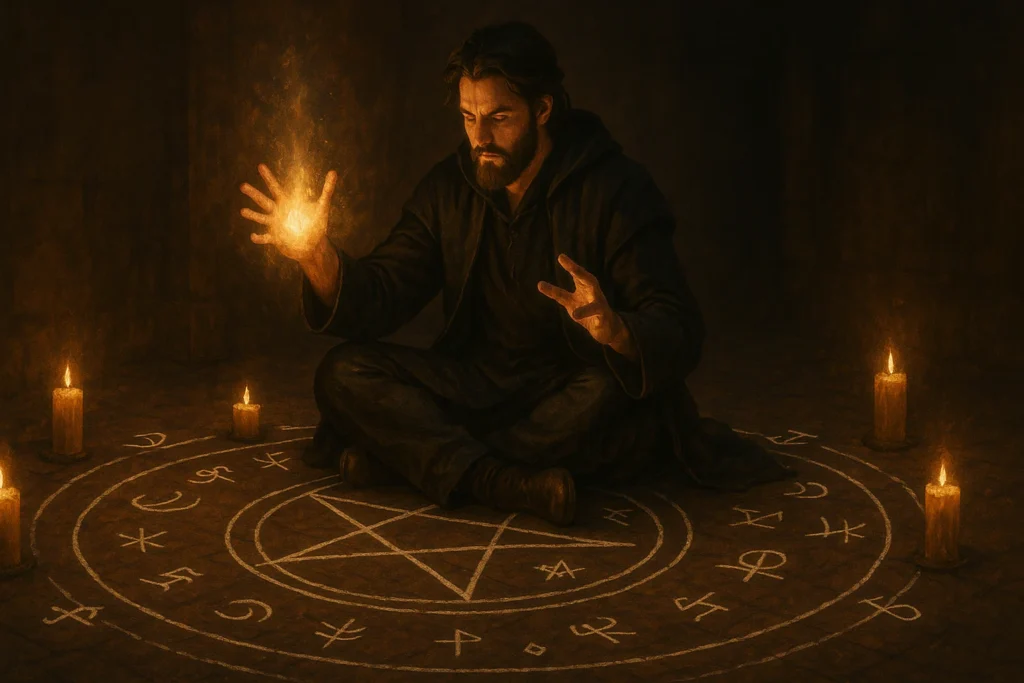
What is White Magic?
White magic refers to the use of magical practices for positive, healing, and protective purposes. It is the “light side” of magic, focusing on intentions like love, peace, cleansing, health, and spiritual growth. In the context of Wicca, magic is not about controlling others but about aligning oneself with natural energies and working with intention.
Common forms of white magic include:
- Candle magic for manifestation and healing
- Herbal magic using plants for spiritual and physical wellness
- Crystal work for energetic balance
- Protection spells and blessings
- Moon rituals aligned with lunar phases for setting intentions
White magic is always performed with respect, responsibility, and mindfulness of its ethical implications.
Misconceptions and Modern Acceptance
Due to pop culture and historical bias, Wicca and witchcraft have often been misunderstood or feared. Wiccans do not worship the devil (a Christian concept not present in Wicca), and white magic is not about manipulation or dark arts. Instead, Wiccans see divinity in nature and themselves, often following a path that is deeply spiritual, peaceful, and life-affirming.
Today, Wicca is practiced by people around the world, with many solitary practitioners and organized covens. Thanks to books, the internet, and open communities, more people are learning about this path and discovering its emphasis on personal responsibility, inner power, and harmony with nature.
Is Wicca Good or Evil?
Wicca is not evil. In fact, one of the core principles of Wicca is “Do what you will, as long as it harms none.” That means Wiccans aim to live in a way that’s kind, ethical, and peaceful — towards both people and the planet.
Wiccans don’t believe in a devil or hell — those are concepts from other religions. So when people label Wicca as evil, it’s usually because of misunderstandings or stereotypes, not because of the actual beliefs or practices.
Who Is Wicca’s Enemy?
Wicca doesn’t really have “enemies.” It’s not a religion of conflict or conquest. Wiccans don’t go around trying to convert people or fight battles of belief. However, throughout history, Wiccans and other pagans have sometimes faced fear, judgment, or discrimination — often from people who don’t understand what Wicca is really about.
If Wicca has any “enemy,” it might just be ignorance or intolerance — things that keep people divided instead of helping them understand each other.
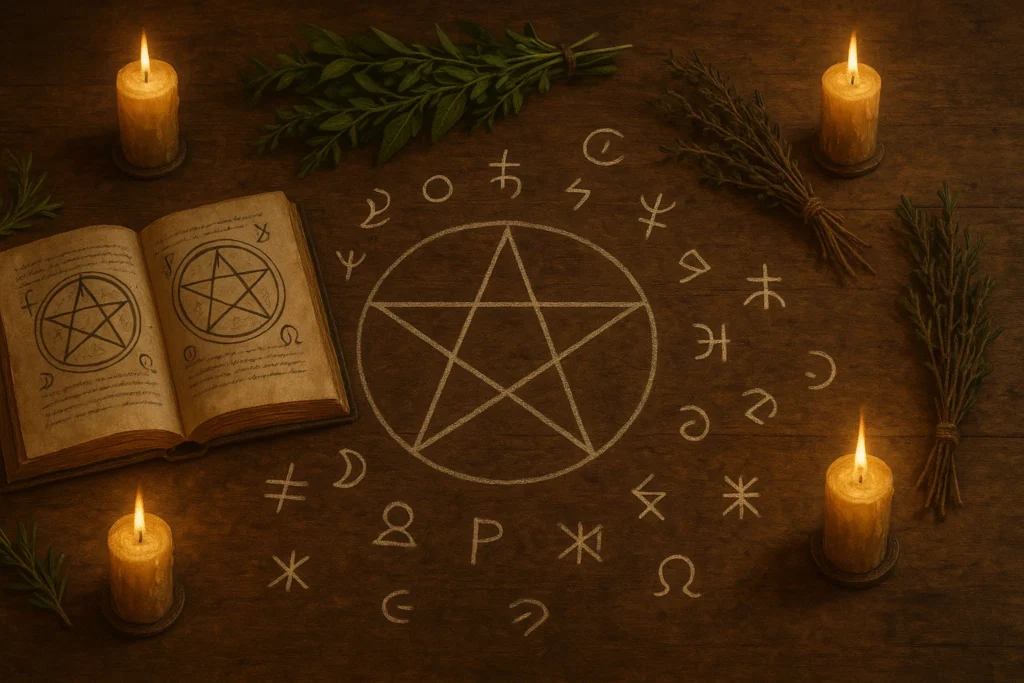
Is White Magic a Sin?
Whether white magic is a sin depends on your belief system. In Wicca, white magic is absolutely not a sin — it’s a form of spiritual practice rooted in love, healing, and respect. But some religions, especially very strict branches, view any kind of magic as wrong, regardless of the intention.
That said, Wiccans don’t follow those doctrines. In their eyes, if your magic is done with a pure heart and positive purpose, it’s not only allowed — it’s encouraged.
Final Thoughts
Wicca and white magic offer a spiritual path that’s deeply personal, peaceful, and closely connected to nature. It’s not about summoning dark forces or casting curses — it’s about living mindfully, working with energy for good, and honoring the cycles of the Earth and life itself.
So if you’re ever curious about Wicca, don’t be afraid to explore. Ask questions, read books, talk to real practitioners. You might just find a gentle, grounding path that helps you see the world — and yourself — a little more clearly.

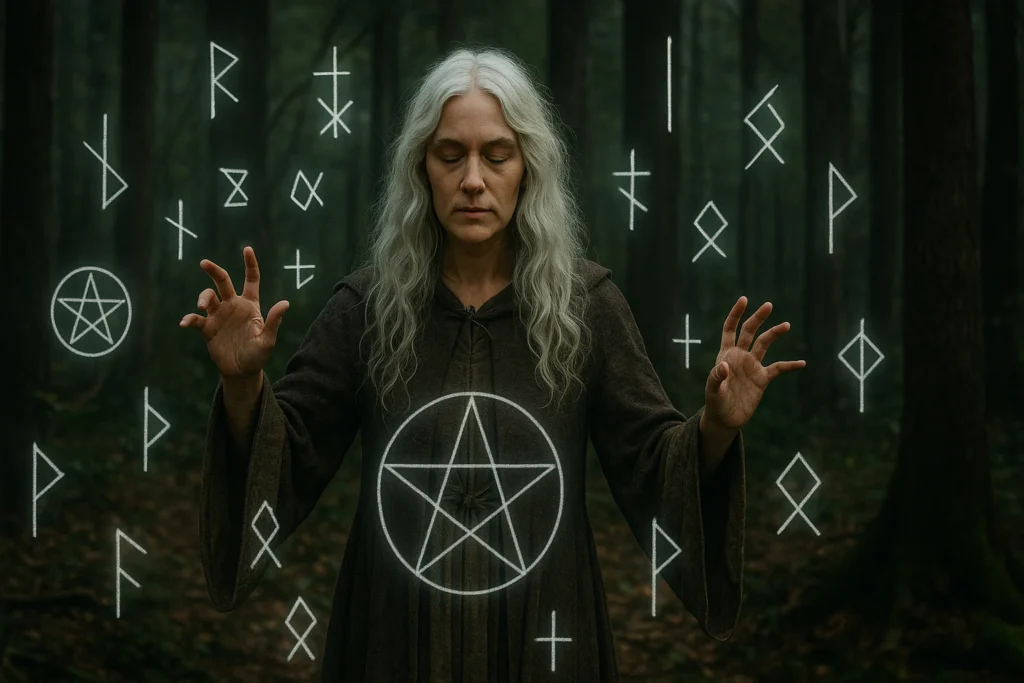
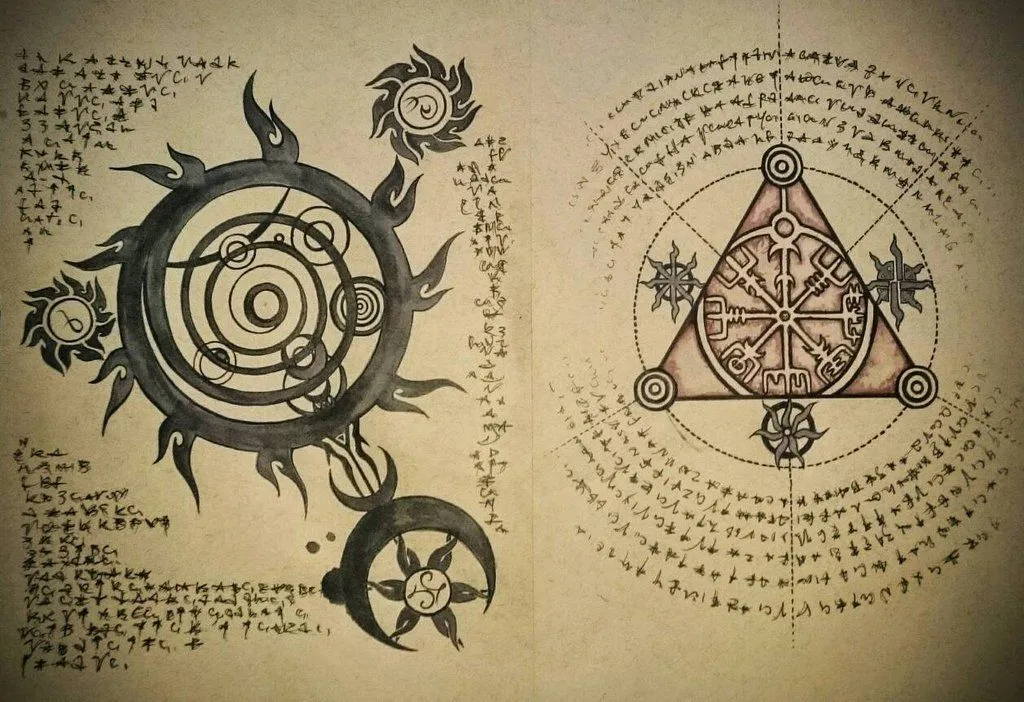
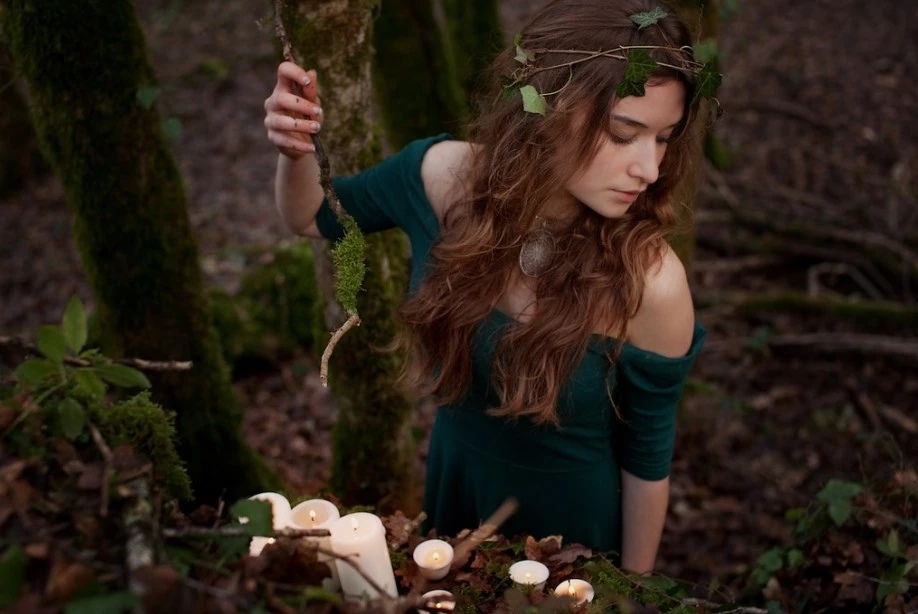
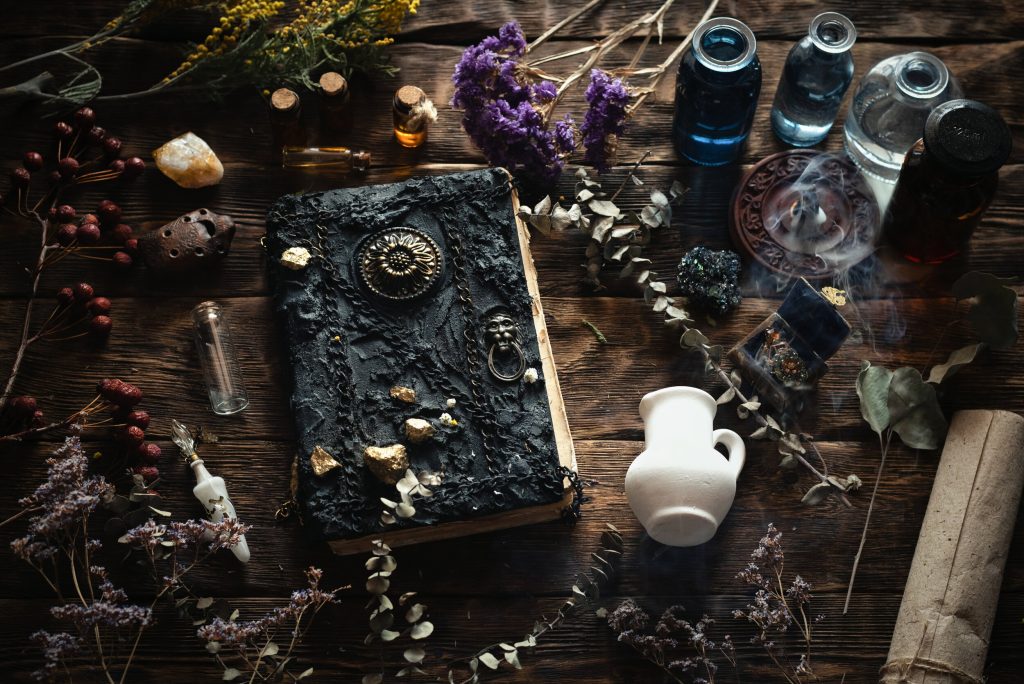
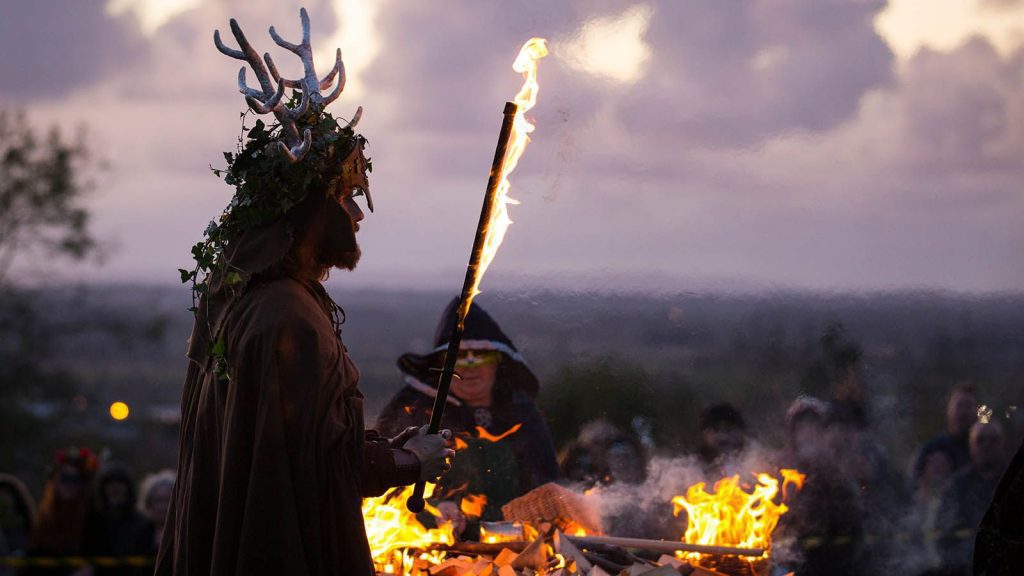
Thanks for finally writing about > Wicca White Magic: A Gentle
Path of Nature, Energy, and Intention – Witch symbols < Loved it!